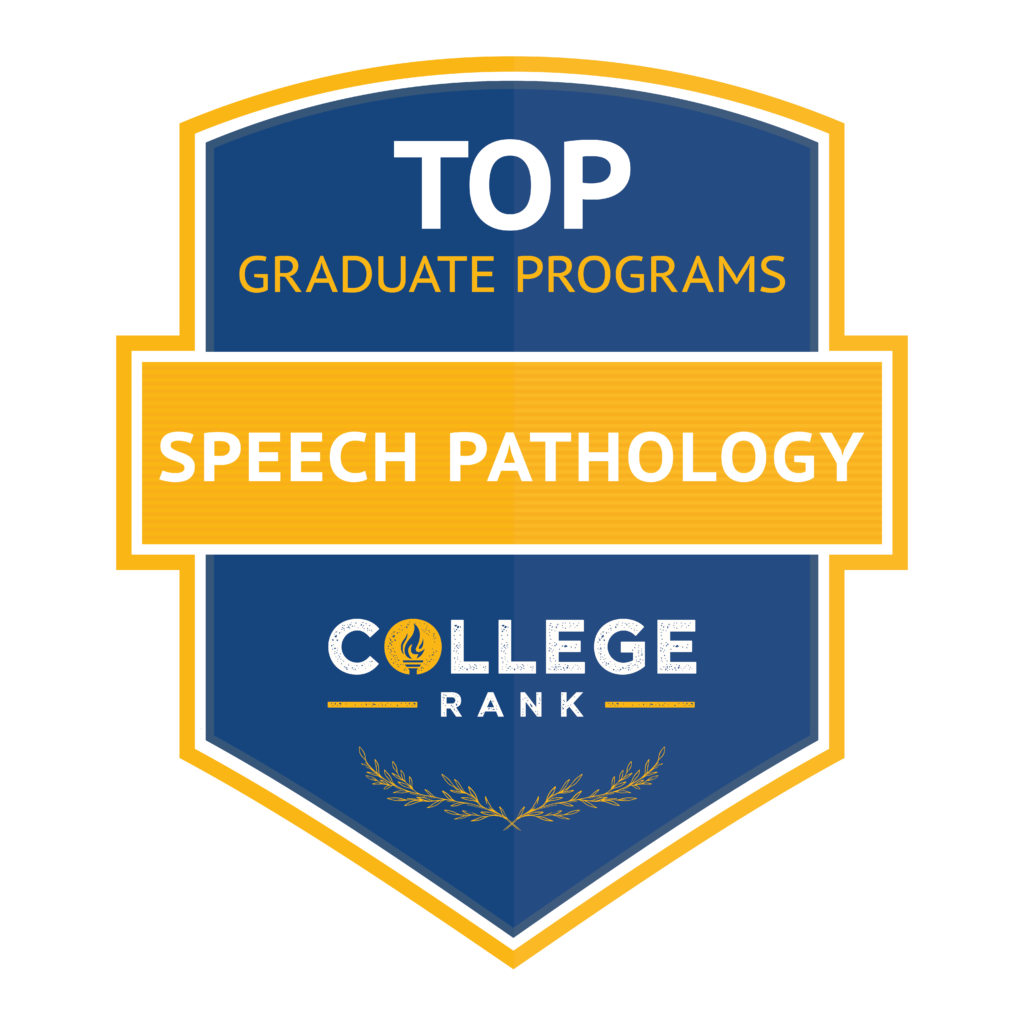Quick Highlights:
- Our #1 ranked school for speech pathology is Purdue University, followed by University of Washington- Seattle Campus.
- Speech therapy programs equip students to address a wide range of communication disorders in various professional settings.
- These programs emphasize practical training through internships and preparatory steps for certification.
- Eligibility for an SLP program often requires a GPA above 3.0.
Best Master’s Speech Therapy
A master’s degree in speech therapy is your last step before becoming a licensed speech-language pathologist.
This is what you’ve been waiting for, right?
You graduated with a bachelor’s. Now all you need before becoming a speech-language pathologist (SLP) is your master’s degree. Then, the world is your oyster. You can work with struggling patients and help the disabled find a way to speak again.
To get your degree, choose one of the 30 Best Master’s in Speech Therapy programs. A career in speech language pathology could be within your grasp!
The rapid growth of the speech-language pathology and speech development profession illustrates how much we’ve neglected people with communication disorders.
Imagine how hard life was for people with a developmental challenge 100 years ago. They knew they had an issue, but it didn’t have a name or a solution. So they were left in agony.
These days, people who have communication disorders can at least find a name for their disorder. And in most cases, speech therapists can treat communication disorders completely, or at least improve long-term outcomes.
Speech therapy is one of the quickest-growing fields in the world, and it’s as fruitful as it is lucrative.
A speech language pathology degree is the way to take part in this growing field!
Related (Campus):
- Top Speech Therapist Bachelor’s Degrees
- Best Speech Language Associate’s Degrees
- Top Speech Pathology Programs in Texas
Related (Online):
What are the Best Master’s in Speech Therapy?
At CollegeRank, we strive to do our best to guide you and your family toward a fruitful academic career. The pursuit of knowledge is a noble one, and we want to help you reach your goals. Please feel free to visit our dedicated methodology page for a step-by-step breakdown including academic accreditation. For questions, comments, badge downloads, or data corrections, please feel free to reach out to us at editor@www.collegerank.net.
Graduate Programs for Speech Language Pathologists
Purdue University-Main Campus
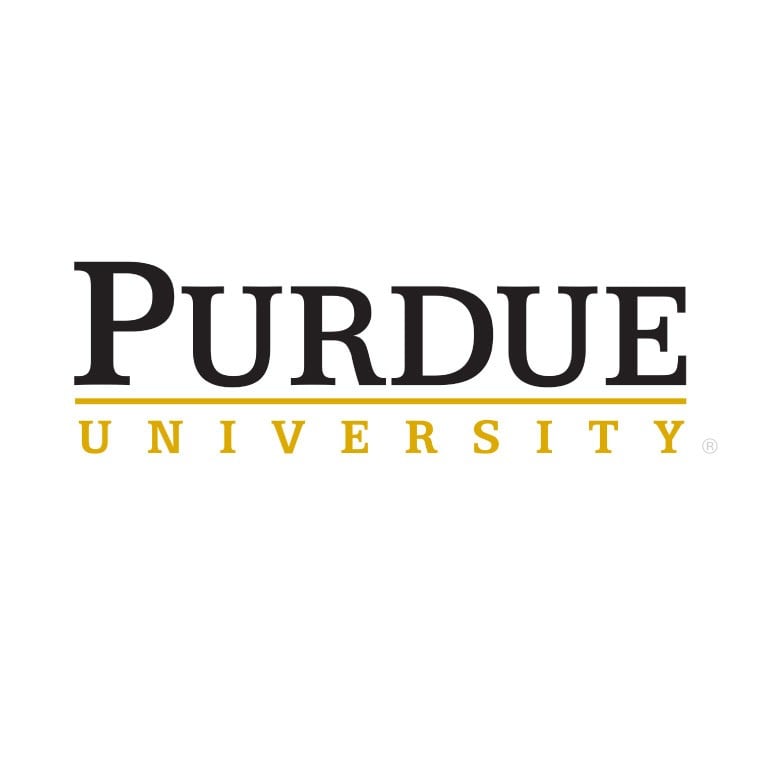
Master of Science in Speech-Language Pathology (MS-SLP) Program
Purdue University offers an excellent Master of Science in Speech-Language Pathology (MS-SLP) Program, ranked #3 by U.S. News & World Report.
Applying students must submit:
- three letters of recommendation
- official transcripts from all institutions attended
- an updated resume
- GRE scores
- answers to the prompts on Purdue’s application
The school is selective, so you should ensure that your application is of the highest quality.
As a graduate student in Purdue’s speech pathology program, you will take fantastic classes like:
- Neural Bases of Speech & Hearing
- Language Disorders in Adults
- Motor Disorders of Speech
- School Clinical Methods
Additionally, you are required to enroll in:
- a clinical practicum
- educational externship
- two healthcare externships
- a practicum
As a pre-professional program, Purdue’s speech and language pathology program prepares students for the Praxis test and the required clinical competence.
The university also provides students with a year-one and year-two checklist to make sure they’re keeping up with the demands of the program and that they’re prepared for their careers.
Academic accreditation for this speech language pathology degree includes:
- Council on Academic Accreditation in Audiology
- Speech-Language Pathology of the American Speech-Language-Hearing Association
University of Washington- Seattle Campus
Master of Science in Speech Language Pathology
As second place on our list, the University of Washington leaves nothing to be desired. Students enjoy:
- an excellent mix of a beautiful campus
- fantastic classes
- faculty who have made an impressionable imprint on speech therapy as a study
To gain admission to this program, you should have a bachelor’s degree in a related field, three letters of recommendation, and a personal statement.
You can choose from three master of science in speech language pathology degree options:
- Schools
- Medical/community
- Research academia
So what classes comprise an excellent curriculum? At the University of Washington, speech therapy you complete classes like:
- Neural Bases of Speech
- Language & Hearing
- Clinical Forum in Speech-Language Pathology
- Assessment & Treatment of Dysphagia.
You must also spend over 500 hours in internships and practicums throughout this two-year master’s program.
These internships require you to observe and participate in the work of established speech therapists. Students can choose to intern in one of over 270 approved locations. UW’s Master of Science in speech-language pathology is the best school in the nation. It offers a clinical practicum and classroom coursework. It will prepare students for clinical competence.
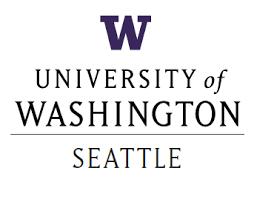
University of Florida
Master of Arts in Communication Sciences and Disorders Program
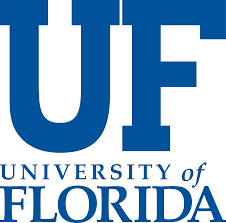
The University of Florida is noted for excellent student life, an active sports community, and outstanding academics. And the school’s Master of Arts in communication sciences and disorders program is no exception to the high-quality academics of the school.
As long as you pass each course and enter the program having completed the required prerequisite courses, you should graduate within two years.
At the University of Florida’s communication sciences and disorders program, you will take classes like:
- Speech Pathology: Stuttering
- Neuro-cognitive Language Disorders
- Introduction to Graduate Research
- Voice Disorders
Besides in-school courses, you take a combination of clinical practicum and externships to gain field experience.
The outcome for the University of Florida’s graduates is strong. During the past two years, 100% of graduates taking the praxis passed! And almost every graduate found employment within three years of graduation.
If you want to attend an excellent school with promising outcomes, look no further than the University of Florida.
This Master’s of Arts Program in Communication Sciences and Disorders has academic accreditation from the Council on Academic Accreditation in Audiology and Speech-Language Pathology of the American Speech-Language-Hearing Association.
University of Wisconsin- Madison
Master of Science in Speech-Language Pathology
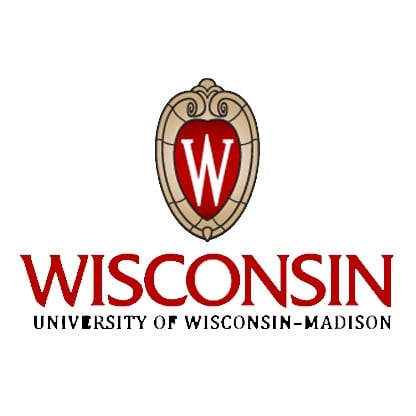
Are you ready to finish up your 20 or so years of schooling and move into the real world? If so, we don’t blame you. But you should make sure you end strong, and you could hardly finish at a better place than the University of Wisconsin.
The school offers a fantastic Master of Science in speech-language pathology with two emphasis areas:
- speech-language and normal aspects of speech
- language, and hearing
This master’s program is a clinical degree that requires coursework and field experience. To join the program, you should have:
- A 3.0 or higher undergraduate degree GPA
- Three letters of recommendation
- An updated resume
- GRE scores
- An application essay
Note that your bachelor’s degree must be in speech therapy or a related field. If not, you should have at least taken the nine SLP-related classes listed on the program website.
Students in this speech pathology program take excellent courses that prepare them for equally fantastic careers. Some of these classes in this speech pathology program are:
- Acquired Language & Cognitive-Communication Disorders in Adults
- Sign Language
- Neural Mechanisms of Speech, Hearing, and Language
the Ohio State University
Master of Arts in Speech-Language Pathology
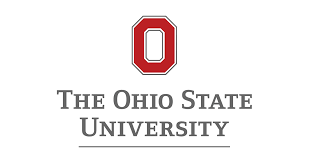
Do you want to attend a school known equally for its outstanding programs, student life, and sports teams?
If so, you can’t do much better than Ohio State University’s Master of Arts in speech-language pathology. In this master of arts program, you can choose one of four specializations:
- Singing Health
- Aging
- Disability Services
- Applied Developmental Sciences in Education
Besides specialization courses, you take core classes like:
- The SLP’s Role in Autism Spectrum Disorders
- Language Disorders in Adults
- Seminar in Fluency Disorders
These classes will give you the knowledge and clinical competence to work with all demographics in a clinical setting. You will, however, gain a focus through your experience in several clinical seminars.
Does this speech pathology program sound like a match for you? Let’s make sure you meet the requirements.
Admitted students must have an undergraduate degree with a 3.0 or higher GPA, though most admitted students have a 3.7 GPA or higher. Students must also:
- submit letters of recommendation
- (optional) GRE scores
- short essays
- proved preparedness to begin the program
University of Arizona
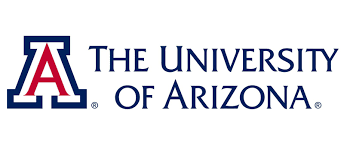
Master of Science in Speech-Language Pathology Program
Do you want to finish your studies and work in the Grand Canyon State? If you do, consider the University of Arizona’s Master of Science in speech-language pathology program.
To gain admission to this program, you should have a 3.0 or higher undergraduate degree GPA, GRE scores in the 30th percentile or higher, three letters of recommendation, and GRE scores.
The University of Arizona’s Master of Science in speech-language pathology stands out because it offers a three-year program for students who didn’t major in a related study.
In the three-year program, you spend your first year completing prerequisite coursework like Phonetics, Language Acquisition, and Communication Disorders. Then, you begin your second year like any other student admitted to the two-year program.
In this top speech pathology graduate program, you will take core courses like:
- Developmental Language Disorders
- Preclinical Speech Science
- Dysphagia
- Language Disorders in School-Age Children
Students of this speech language pathology program supplement their education with several clinical practicums that expose them to the field and test their ability to become an SLP.
University of Illinois- Urbana Champaign
Master of Arts in Speech and Hearing Science Program
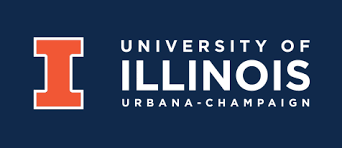
The ability to speak and hear are gifts, and they should be treated as such. Unfortunately, not everybody was born with these gifts, and not everybody dies with them.
Through the University of Illinois’s Master of Arts in speech and hearing sciences program, you will learn how to help people:
- confront
- cope with
- recover from their communication disorders
UIUC offers both a clinical and non-clinical track of this program.
To apply to this best SLP program, you need:
- A completed bachelor’s degree in a related field with a 3.0 or higher GPA
- GRE results
- Two or more letters of recommendation
- A personal statement
- A resume
While these requirements aren’t as strict as other programs on this list, you should still take every component of the application process seriously.
Graduate students complete a variety of advanced classes in the speech and hearing sciences program. Some of the courses are:
- Stuttering: Theory & Practice, Aphasia and Related Disorders
- Clinical Sociolinguistics
- Advanced Language Diagnostics
Students also enroll in over 100 hours of clinical work. Program graduates from this Master’s in speech and hearing sciences must have a 3.0 or higher GPA.
University of Minnesota- Twin Cities
Master of Arts in Speech-Language Pathology
As far as the best graduate schools go, you’ll never go wrong by choosing the school nearest to you as long as it’s one of the best 30 or 50 schools in the nation.
If you live in or near Minnesota, you’ll be more than pleased with the University of Minnesota’s Master of Arts in speech-language pathology.
This graduate program emphasizes:
- evidence-based practices
- the ethics of a medical practitioner
- the nuanced understanding of speech-language communication conditions
Applying graduate students should have taken the following prerequisite coursework prior to admission:
- Anatomy & Physiology of the Speech & Hearing Mechanisms
- Phonetics, Speech Science
- Rehabilitative Audiology
Career outcomes for program graduates are strong. Of note, 100% of graduates have passed the Praxis exam and found employment in the SLP field within one year of graduating.
If you want to take an excellent program with an emphasis on clinical studies, be sure to consider applying to one of the best speech language pathology programs at the University of Minnesota.
University of Iowa
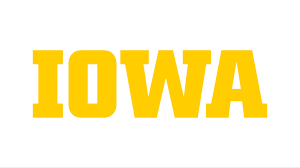
Master of Arts in Speech-Language Pathology
As an SLP, do you want to work with children in schools? Or would you rather work with people fighting debilitating diseases in a nursing home?
No matter your choice, or whether you know yet, the University of Iowa’s Master of Arts in speech-language pathology program will get you where you want to go.
The University of Iowa’s top SLP program is one of the most selective programs on this list. To gain admission, you should have:
- A 3.4 undergraduate GPA or higher
- Verbal GRE scores over the 40th percentile
- Quantitative GRE scores anywhere over the 40th percentile
These requirements are the bare minimum—the average applicant exceeds each of those numbers.
Like other SLP programs, students combine on-campus classes with supervised clinical practice.
Some courses you will complete are:
- Intro to Stuttering Disorders
- Manual Communication
- Pediatric Feeding and Swallowing Disorders
- Neurogenic Disorders of Speech and Swallowing.
You must also complete two eight-week outplacement experiences and three practicums. Iowa’s master’s in speech language pathology is offered both with and without a thesis.
University of North Carolina- Chapel Hill
Master of Science in Speech and Hearing Sciences

The University of North Carolina’s Master of Science in Speech and Hearing Sciences program is one of the best of its kind.
The 60-credit curriculum blends foundational studies, recent research, and on-the-ground experiences in local speech therapy work environments. Students who don’t wish to become ASHA certified can choose a non-clinical practice track of the program.
The average profile of an admitted student is as follows:
- A vast range of life experience
- A 3.74 GPA
- GRE scores in at least the 70th percentile
- Extensive extracurricular activities
- Completed prerequisite courses
While you can still gain admittance without meeting all of these standards, you’ll have to focus on:
- the quality of your resume
- purpose statement
- letters of recommendation
The University of North Carolina offers an excellent opportunity for bilingual students to gain clinical experiences in Spanish-speaking environments. Alongside their master’s degree, students can work toward a certificate in Latin American studies to prove their ability to work in Spanish-speaking settings.
University of Maryland- College Park
Master of Arts in Speech-Language Pathology
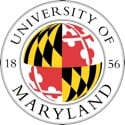
The University of Maryland’s Master of Arts Program in speech-language pathology is a fantastic program offering:
- world-renowned faculty
- top-of-the-line classes
- links to outstanding clinical facilities
One hundred percent of graduates from the University of Maryland have passed the ASHA Praxis exam. Also, 95% have found employment within a year of graduation!
Applying students must submit:
- official transcripts
- three letters of recommendation
- GRE scores
- a personal statement
- $75 non-refundable application fee
At the University of Maryland, you will complete classes like:
- Language Disorders in School-Age
- Alternative & Augmentative Communication
- Foundations of Scientific Enquiry
- Bilingual Assessment & Intervention
These core courses orient students to the latest research and foundational topics in speech therapy.
As an SLP major in this advanced degree, you can choose clinical experiences from the following places:
- The Language-Learning Early-Advantage Program, an acclaimed preschool
- Avoidance Reduction Group Therapy
- The Program for the Education and Enrichment of Relational Skills
Each of these state-of-the-art facilities offers students insight into the latest practices in speech therapy.
University of Texas at Austin

Master of Science in Speech, Language, and Hearing Science
The University of Texas offers an excellent five-semester Master of Science in speech, language, and hearing science program.
The 57-60 credit hour SLP graduate program:
- imparts critical knowledge to students
- puts them in the field for in-person experience
- prepares them for a lifelong career as a speech therapist
One unique aspect of the University of Texas program is the availability of a bilingual and multicultural certificate, which focuses on Spanish-speaking populations. Spanish is the second language of most states around America, and many primarily Spanish speakers struggle with communication disorders, too. With this certificate, you’ll gain the language and cultural knowledge required to work with those populations.
Some graduate courses are:
- Knowledge & Skills in Clinical Science
- School-Age Language Disorders
- Fluency
- Acquired Cognitive Communication Disorders.
Like other best speech language pathology programs, you must also work for at least 375 hours in the field. You can split these hours between adults and children, and between patients who cope with several types of communication disorders.
University of Utah
Master of Science in Speech-Language Pathology
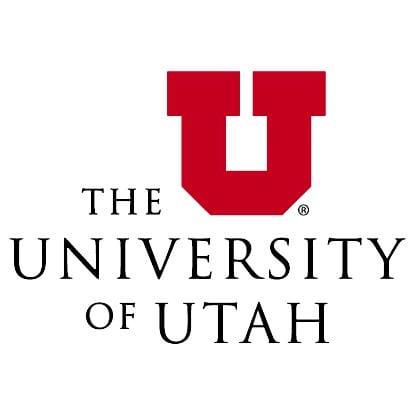
Students enrolled in the University of Utah’s Master of Science in speech-language pathology program can choose between either a thesis or a non-thesis option. If you want to join the thesis option, the university expects you to have a rough outline of the thesis before beginning the program.
The program lasts five semesters, which can take anywhere from nearly two years to over five years, depending on your time availability and speed.
This SLP program requires 55 credit hours of work. Nineteen of those credit hours are spent in clinical practicums, which require you to observe SLPs and perform as an SLP in different contexts.
The University of Utah requires all students to enroll in at least two full-time externships. The first externship must be completed in a public or private school. The second externship may be completed in a location of the student’s choosing.
The other 36 credits are spent in class, taking speech language pathology courses like:
- Motor Speech Disorders
- Fluency Disorders
- Swallowing Disability and Medical Management Issues
These classes will give you the background required for your practicums, externships, and career as an SLP.
Indiana University- Bloomington
Master of Arts in Speech-Language Pathology
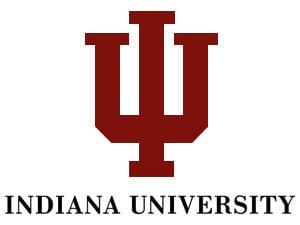
Your studies are almost over, and your career has nearly begun. That’s exciting! But you want to make sure that you take your master’s degree seriously, no matter how close you are to the finish line.
Indiana University Bloomington’s Master of Arts in speech-language pathology is one of the best programs in the nation. It’s an excellent place to finish your studies.
Of note, Indiana University Bloomington offers a Bilingual Track (Spanish-English) in Speech-Language Pathology. This track is a great idea for any student who already speaks Spanish, or who wants to learn the language to engage with a greater populace and more cultures.
The speech language pathology program is designed to last around two years, no matter whether your undergraduate degree is in speech therapy or an entirely different field.
After finishing this program, graduates have found great success: 100% of the program’s graduates passed the Praxis exam and found employment within one year of graduating.
Arizona State University- Tempe
Master of Science in Communication Disorders
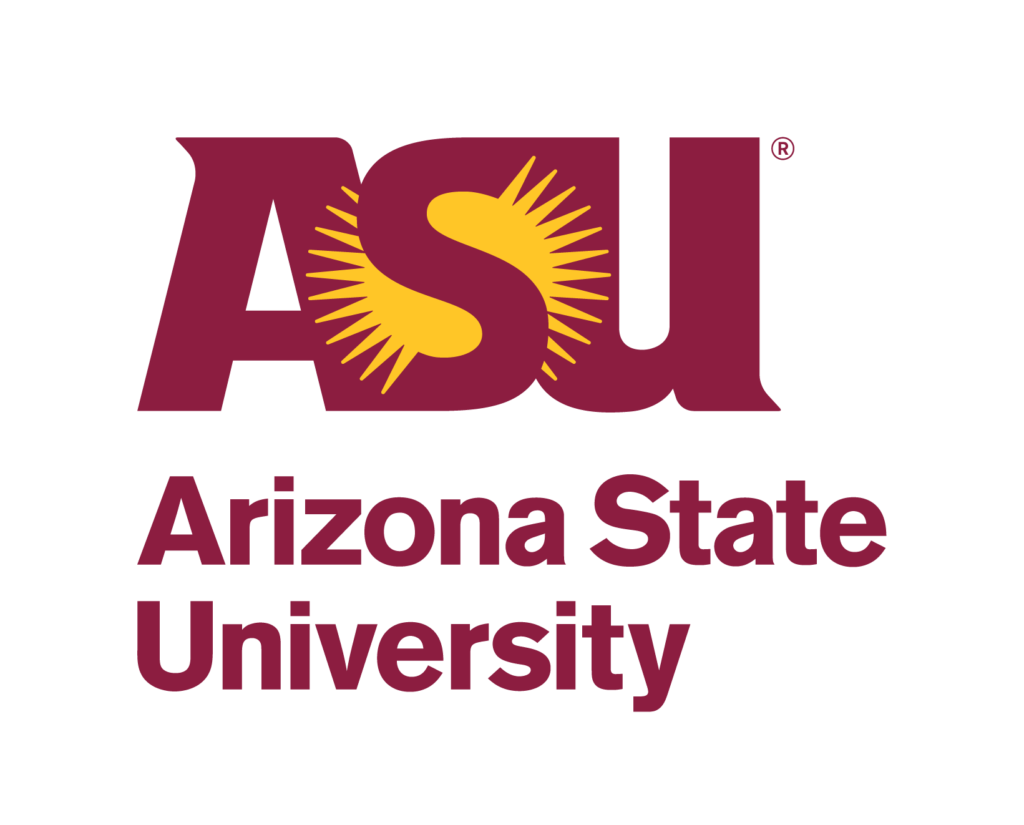
Arizona State University has one of the largest student bodies of any university in the world.
As such, they cater to each of their many students, offering a vast range of degree programs.
Within each program, the university emphasizes quality in addition to quantity. And Arizona State University’s Master of Science in communication sciences and disorders is no exception to this rule.
Besides the normal full-time program, ASU students can choose from three program options. In the part-time employment program, you can finish the program part-time while working in public schools. The multilingual/multicultural program is for students who want to work with patients from diverse backgrounds.
Of note, this program grants accepted students a partial tuition waiver. Finally, the East Carolina University/Arizona State University joint program allows students to take online courses through ECU and clinical studies through ASU.
Students in ASU’s communication disorders program take classes like:
- Special Populations & Syndromes
- Motor Speech Disorders
- Neural Bases of Communication Disorders
These classes will give you the foundation to build a strong career in the SLP field.
University at Buffalo
Master’s of Arts in Communicative Disorders and Sciences
The University of Buffalo is one of the leading research universities in the United States.
Here you can earn a Master’s of Arts in communicative disorders and sciences that will get you to your goal as a speech language pathologist.
Most students complete this program in four semesters and one summer semester. Additionally, you can pursue the thesis or non-thesis option.
You will take at least 40 credit hours in communicative disorders and sciences, not including clinical practicum. You will receive at least two externship placements, each full-time positions for eight weeks. The real world experience required in this program is a perk! Students graduate ready to start their careers as SLPs.
Along with rigorous coursework and real world experience, you have plenty of research opportunities. For example, some students pursue research projects in speech perception, motor speech disorders, or child language disorders.
You must maintain a 3.0 during the course of the program.
Florida State University
Master of Science in Communication Science & Disorders
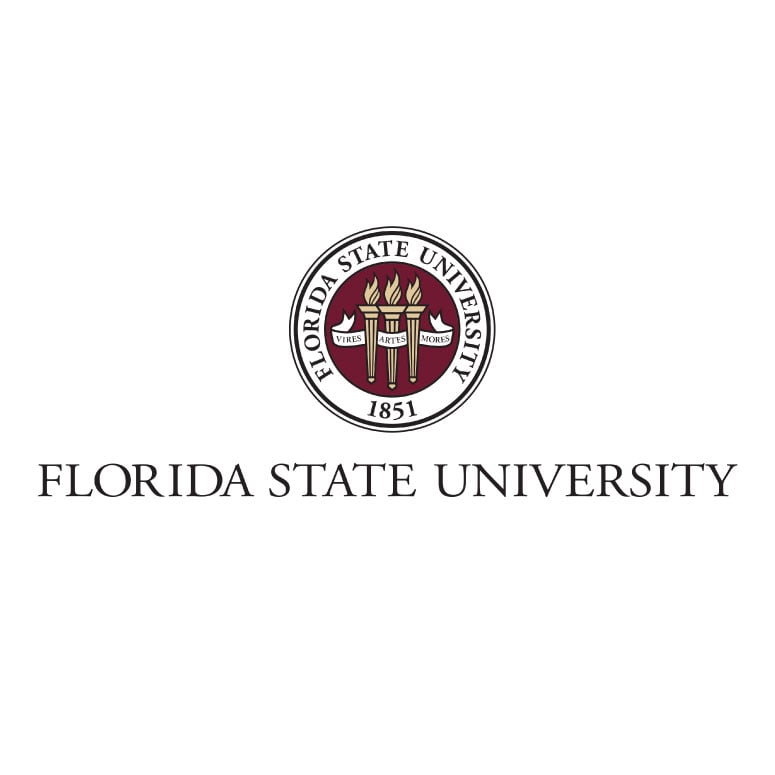
Another ranking from Florida, Florida State University’s Master of Science in communication science & disorders is about as good as it gets.
Students complete the program in small cohorts. This adds a level of familiarity, camaraderie, and community to the program.
Applying students must have:
- a 3.0 or higher from an accredited university
- an updated resume
- three letters of recommendation
- a statement of intent
You will take a combination of:
- core courses
- elective classes
- clinical coursework
- clinical practicum courses
Some core and elective classes are:
- Speech and Swallowing Disorders
- Developmental Communication Disorders
- Motor Speech Disorders
- Advanced Aural Rehabilitation
Besides on-campus courses, you must take part in clinical practicum for 23 credits.
At Florida State University, students are graced by the presence of accomplished faculty members. Some of them are professors in the field, while others are experienced SLPs who have developed the desire and ability to educate aspiring speech language pathologists.
University of Georgia
Master of Education in Communication Sciences and Disorders
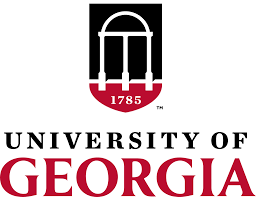
The University of Georgia’s Master of Education in communication sciences and disorders is a non-thesis program. The program emphasizes clinical experience over research, and preparation for the profession over scholarly study.
If you want to break into the SLP profession as a trained graduate, this school is for you.
Students enroll in the summer semester, and if they complete their studies and clinical practices on-time, they can graduate after their second spring semester.
Some classes students in this Communication Sciences and Disorders program take are:
- Multicultural Issues in SLP, Language Assessment and Intervention – Preschool Children
- Neurogenic Speech Disorders
- Voice Disorders
- Neurobiology of Communication
Students also take part in clinical experiences and mini-internships.
These experiences encourage students to observe and take part in the SLP profession in different contexts, like schools and hospitals. That way, students can have an idea of the type of SLP work they want to do post-graduation and will have clinical competence.
University of Kansas
Master of Arts in Speech-Language Pathology
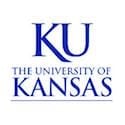
Do you live near Kansas? Are you interested in earning a Master of Arts in speech-language pathology at an excellent institution near you?
If so, look no further.
The University of Kansas’s SLP master’s program holds a light to the best institutions in the nation. You can’t go wrong by choosing this best speech pathology grad school with:
- accomplished faculty members
- excellent classes
- focused clinical work
Interested? To apply, you must have a 3.0 GPA or higher. Admitted students have an average undergraduate GPA of 3.85.
Besides that, students need:
- 25 hours of clinical practice experience
- a resume
- a purpose statement
- letters of recommendation
Students aren’t required to have majored in an SLP-related field, but they must finish prerequisite courses before the program technically begins.
Students in this program learn the following classes:
- Multicultural Considerations in Speech-Language-Hearing
- Professional Issues
- Evaluation of Speech and Language
- Advanced Clinical Practice in Speech-Language Pathology
Like all other top speech pathology master’s programs, you will spend months in clinical internships.
University of South Florida- Main Campus
Master of Science in Speech-Language Pathology
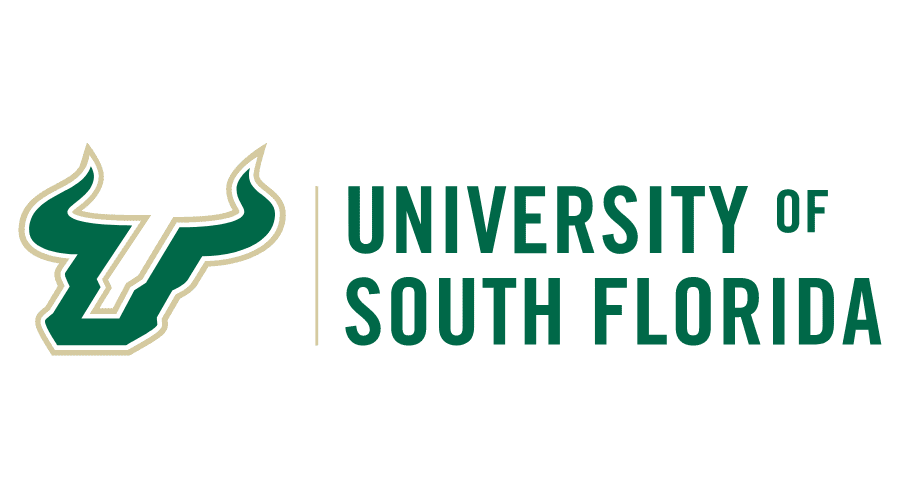
The University of South Florida has one of the best Master of Science in speech-language pathology programs in the nation. It is also one of the top five school options for students living in the Southeast region of the country.
This top speech pathology program lasts six semesters and combines clinical experience with on-campus academic studies.
Students at this school aren’t required to have received a bachelor’s degree in a similar area. If you don’t, though, you will have to take around one year of prerequisite courses before the master’s program technically begins. Then, you will be enrolled, taking a combination of:
- core classes
- elective courses
- clinical experience
Unique to the University of South Florida, the Suncoast Consortium Track is an excellent option for people who have graduated from a bachelor’s degree program and now work directly with speech-language pathologists.
In this speech language pathology program, you will take nine semesters of online and in-person classes as you continue their work as SLP assistants or paraprofessionals.
University of Virginia- Main Campus
Master of Education in Communication Sciences and Disorders

The University of Virginia is one of the best public universities in the United States and around the world. Its graduates have become leaders in many fields, including speech-language pathology.
The University of Virginia’s Master of Education in communication sciences and disorders is an excellent option for anybody who wishes to become a clinical SLP professional.
Students at the University of Virginia take excellent classes like:
- Prevention, Assessment, and Intervention
- Disorders of Phonology and Articulation
- Disorders of Communication Based in Cognitive Dysfunction: Adults
This speech language pathology program lasts two years, and it combines classroom learning with clinical experience.
This Communication Sciences and Disorders program will give you the speech language pathology credential needed for a successful career.
This program is accredited by the Council on Academic Accreditation in Audiology and Speech-Language Pathology of the American Speech-Language-Hearing Association.
The University of Virginia has an option for students who didn’t graduate with a bachelor’s degree in a related field. This track follows the two-year master’s degree program, but it adds a year for students to complete required prerequisite work.
The school accepts around 27 students per year, making this program very selective. If you want to gain admittance, be sure that you’re presenting yourself in the best possible way on your application.
University of Connecticut
Master of Arts in Speech-Language Pathology
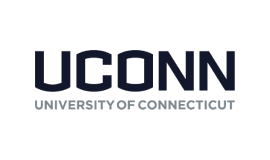
Do you want to join the highly esteemed Master of Arts in speech-language pathology at the University of Connecticut?
Applying students should have:
- three letters of reference
- two essay forms
- an undergraduate GPA of at least 3.0 (the average GPA of accepted students is 3.7)
GRE scores aren’t required, but a good GRE score is worth reporting on the application.
You must record 25 hours of clinical observation before being accepted into the program. Clinical observation and experience is a central component of any SLP program. It’s the central point of any SLP’s career.
At UConn, you will continue your clinical experience until you meet licensure requirements.
So how much clinical experience does it take?
At UConn, students must record 400 hours of clinical practicum. Of these 400 hours, 375 must be in direct work with patients. Twenty-five hours must be spent observing professional SLPs. Students will spend a full summer in clinical work. They will also spend time throughout the regular school year gaining clinical experience.
Temple University
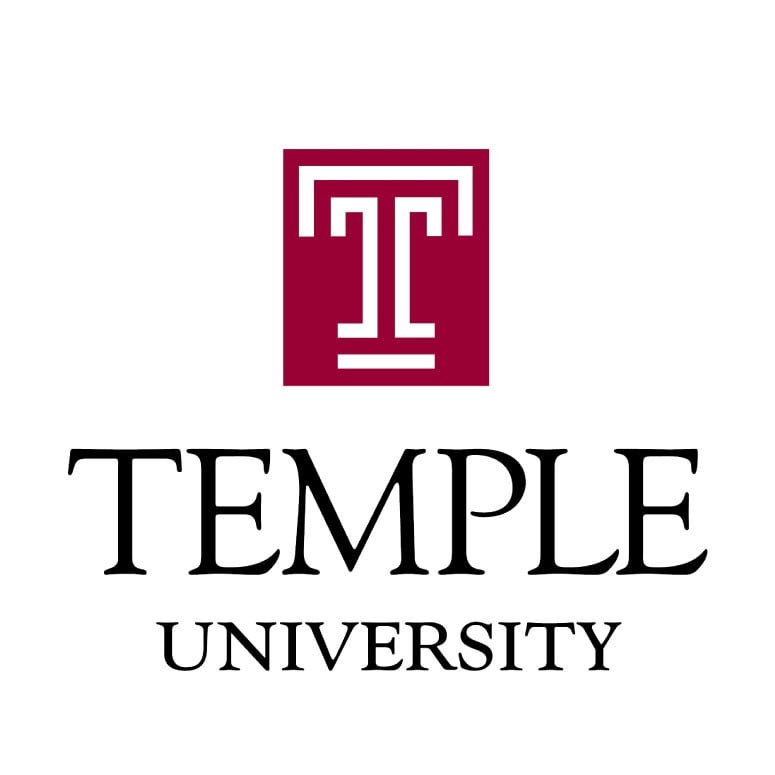
Master of Arts in Speech, Language, and Hearing Science
Hands-on learners will love Temple University’s Master of Arts in speech, language, and hearing science.
While every top speech pathology program includes clinical experience in its curriculum, Temple emphasizes it. The faculty finds that students learn quickest when knowledge is applied, and if you believe that statement, you should consider Temple University.
Temple University is proud to have over 80 clinical affiliates in Pennsylvania. Through all of these connections, you will have excellent clinical experiences in:
- schools
- private practices
- nursing homes
- universities
Students in the speech, language, and hearing science program also have the option to perform supervised research on the Temple campus.
This master’s program lasts two years, including two summers, for students who have completed the prerequisite classes. For students who didn’t major in a related field, they can spend a year taking prerequisite classes at Temple University before officially enrolling in the two-year master’s program.
Students can also write a thesis, but it isn’t required.
University of Pittsburg- Pittsburg Campus
Master of Science in Speech-Language Pathology
By far the best SLP program in Pennsylvania, the University of Pittsburgh’s Master of Science in speech-language pathology is also ranked #3 in the nation by U.S. News & World Report.
To have a good chance of gaining admission into this very selective program, you should have:
- a 3.5 or higher GPA
- submit GRE scores
- three letters of recommendation
- an updated resume
The University of Pittsburgh’s curriculum comprises 60 credits of traditional classes and field experiences. Some courses you will take are:
- Neurogenic Language and Cognitive Communication Disorders
- Child Language Disorders
- Dysphagia
- Fluency Disorders
These classes will help you build an understanding so you’re never short of knowledge when you become a licensed speech language pathologist.
There are four required clinical practicums:
- Clinic Practicum in Audiology
- Clinic Practicum in SLP – Network
- Clinic Practicum in SLP – Outplacement
- Practicum in Schools
These experiences will help you adjust to a career as an SLP and provide you hundreds of hours of the required clinical experience to become an SLP.
San Diego State University

Master of Arts in Speech, Language, and Hearing Sciences
All of the programs on this list are excellent, but not all of them provide you the opportunity to study a few miles from the ocean.
San Diego State University’s location is fantastic, but so is its Master of Arts in speech, language, and hearing sciences program.
To gain admission, you must have a 3.2 or higher GPA and GRE scores. Note that the average GPA of incoming students is around 3.8.
The standard program includes two years of study and clinical experience, including the summer between the first and second years. In this time, you enroll in courses like:
- Clinical Issues in Aural Rehabilitation
- Speech-Language Screening of Children
- Research Methods in Communication Sciences and Disorders
- Acquired Neuromotor Speech Disorders
Besides on-campus studies, you must:
- complete clinical practice in a public school
- participate in a few research studies
- complete a project or a thesis
At SDSU you can also choose the option to specialize in bilingualism.
University of Nebraska- Lincoln
Master of Science in Speech-Language Pathology
It’s no secret that the speech-language pathology field is booming right now. There are more jobs than ever before. There still aren’t enough SLPs to cover all of the patients in need.
If you want to join the ranks, consider finishing your studies at the University of Nebraska. The university’s Master of Science in speech-language pathology program consistently ranks in the top 10% of graduate programs nationwide.
The average cumulative GPA of admitted students hovers around 3.83 out of 4.0, and GRE scores are in the 50th percentile or higher. The university is very selective, but as the statistics show, the admissions department values your grades more than your test scores.
Additionally, you can prove yourself with:
- a diverse resume
- excellent letters of recommendation
- a poignant purpose statement
Around 98% of Nebraska students complete the master’s program on-time. One hundred percent of them pass the Praxis test, and around 93% of graduates find employment within one year of graduating.
Michigan State University
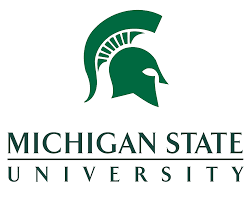
Master of Arts in Communicative Sciences and Disorders
Go Green, Go White!
Well, sports fan or not, any aspiring SLP will be enamored with Michigan State University’s Master of Arts program in communicative sciences and disorders.
The faculty is great. The classes are carefully designed and taught.
Additionally, Michigan State University has connected to over 100 facilities near Lansing. Students can complete required clinical hours in these facilities, and exceed those hours if they wish to do so.
As a student in this top speech pathology program, you will take the following classes:
- Research Methods in Communicative Sciences and Disorders
- Autism and Related Neurodevelopmental Disorders
- Acquired Language Disorders
- Assessment and Treatment of Dysphagia
These classes are invaluable to your future as a licensed SLP.
You can take an optional thesis track. Those who choose not to write a thesis have to take six additional credits in the Department of Communicative Sciences and Disorders. Additionally, they must pass a final examination to graduate from Michigan State University’s program.
Louisiana State University and Agricultural & Mechanical College
Master of Arts in Speech-Language Pathology
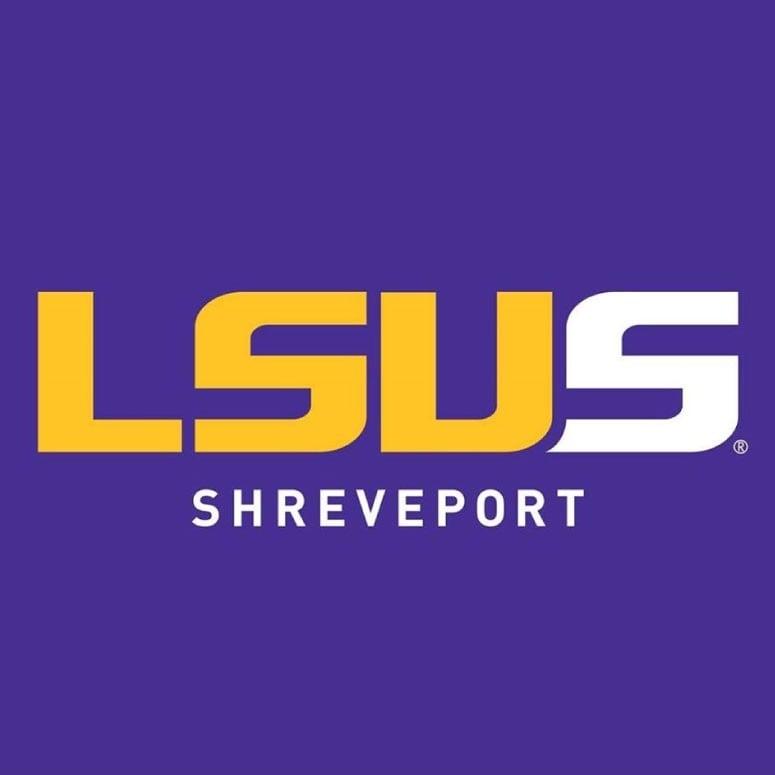
Are you a resident of the Pelican State, and are you pretty sure that you don’t want to leave?
Or do you live elsewhere, but you’re pretty sure you want to live in Louisiana?
If either of these statements apply, check out Louisiana State University’s Master of Arts program in speech-language pathology. LSU is among the best colleges for speech pathology.
This speech language pathology program stands out for a few reasons.
First, each of the master-level classes is taught by educators who hold Ph.D. degrees, which isn’t standard for SLP programs.
Second, the university has affiliate agreements with dozens of top-of-the-line facilities for SLP professionals and students in SLP programs.
Lastly, students in this program have access to leading faculty and research from related LSU programs. Through these connections, students can expand their studies and network.
As a SLP graduate student in this program, you can choose between a thesis and non-thesis track. Either way, you must complete 39 credit hours of courses to graduate from the program.
University of Colorado- Boulder
Master’s Degree in Speech-Language Pathology
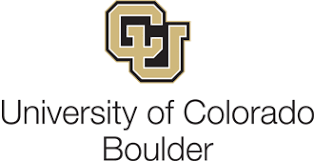
Boulder, Colorado is recognizable by:
- the famous Flatirons
- a bohemian scene
- access to beautiful nature
- a world-famous university
The University of Colorado Boulder’s master’s degree in speech-language pathology is an excellent option for aspiring SLPs who are also nature lovers and Colorado residents.
There are three options within CU Boulder’s SLP program.
The first is for those who graduated with a bachelor’s degree in a related field. Those students will take two years of classes and clinical experiences before completing the degree. Some courses students take are:
- Neurogenic Speech Disorders
- Resonance Disorders
- Development and Intervention in Childhood Hearing Loss
The second option is for those who didn’t have an undergraduate major related to speech-language pathology. For these students, the last two years are the same as the first option. The difference is that students must spend a year taking prerequisite courses like:
- Phonetics
- Hearing Science
- Audiological Evaluation
The final track is for those who want to complete a thesis. Those students will be more focused on research than on clinical work.
University of Texas- Dallas
Master of Science in Speech-Language Pathology

Are you ready to finish your last stretch of studies before becoming a speech therapist?
We bet.
And the University of Texas at Dallas is one of the best universities for you to complete your studies. The school has a fantastic Master of Science in speech-language pathology program. It combines excellent classes and the clinical training required to gain licensure.
While some schools separate coursework from clinical studies and internships, this program requires students to enroll in clinical studies or an internship during each term of the program.
Students can join the program during the fall, spring, or summer semesters, providing flexibility to all applicants.
Students at this school take the following core courses:
- Assessment and Intervention of Language Impairments in Preschool and School-Age Children
- Neurogenic Communication Disorders
- Dysphagia
- Stuttering
These courses will prepare you to work with patients of all ages who deal with all types of communication disorders.
Academic accreditation comes from the Council on Academic Accreditation in Audiology and Speech-Language Pathology of the American Speech-Language-Hearing Association.
Other Notable Programs
- San Diego State University
- Loma Linda University School
Frequently Asked Questions
Absolutely! According to the Bureau of Labor Statistics, demand for speech pathologists will increase 19% over the next 10 years. About 13,200 new job openings will result each year, on average, through 2032. With an aging baby-boom population, the need for speech-language pathologists is on the rise.
You will need both a bachelor’s and master’s degree to work in the field. The best degrees to get are in speech pathology because these programs give you specific knowledge and understanding of the career. Many speech pathology programs also offer concentrations in autism disorders, fluency, or swallowing disorders which allow you to tailor your degree to meet career goals.
Yes, but it depends on where you work and how much experience you have. Right out of school, speech-language pathologists earn good pay. The Bureau of Labor Statistics reports an average pay of $84,140/year. But the highest 10% of earners in this occupation make $126,680/year on average. SLPs in nursing and residential care facilities make $101,320/year, on average.
Tips for increasing your chances of getting into Speech-Language Pathology school include:
• Get a high undergraduate GPA
• Earn the right undergraduate degree
• Complete the GRE
• Plan your letters of recommendation carefully
• Write a meaningful personal statement
• Showcase your volunteer and leadership experience
• Choose the right program
• Apply to multiple programs
A Master’s in Speech Pathology takes about two to three years to complete. Most programs include coursework in communication disorders, anatomy, and clinical practice. Some part time programs are available and take between 3 and 4 years to complete.
Admission to a speech pathology graduate school and program requires a minimum 3.00 grade point average. Top-ranked schools may require a higher GPA for admission. Since programs are competitive, it is important to have the highest GPA you can.
Earning a Master’s in Speech Pathology can be challenging for some students. The program includes in-depth study of communication disorders, clinical practice, and research. Students need a solid grasp of linguistics, anatomy, and therapeutic techniques. The clinical component demands hands-on skills and requires time and effort.
They are basically the same thing. They are both experts in communication that assess, diagnose, and treat speech, language, voice, and related disorders in patients from birth to old age. Speech-language pathology is the more accepted and appropriate term for a speech therapist.
Speech pathology involves minimal math compared to fields like finance or engineering. While you use basic arithmetic for tasks such as budgeting or data analysis, the core focus is on communication disorders, language development, and therapeutic techniques. Strong communication and interpersonal skills are very important in this field.
Speech therapists experience stress due to caseload demands, client progress expectations, and administrative tasks. But the reward of helping clients communicate effectively can offset stress. Effective time management and self-care practices can contribute to a balanced and fulfilling career.
